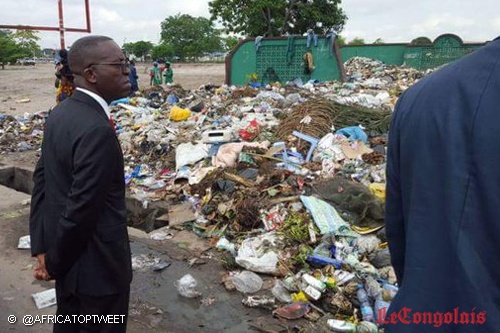Public Spaces Recovery In Collaboration With The Population
FC-02x Livable Future Cities (1st Run) - Compulsory Exercise 6

Uploaded on 2015-11-26 by MrBasabose
They have funded the collection of the rubbish for a year and then stopped by transfer responsibility to the provincial government of the city of Kinshasa. Without financial backing, the city is incapable of collecting the rubbish as frequently as needed, resulting in large open-air dumping areas putting the lives of residents in danger. Places formerly known as beneficial to public health are today one of the most prominent dangers to public health in the city. ![DR Congo's Prime Minister Matata Ponyo visiting abandoned dumping zones in public spaces, this space used to be a municipal football pitch, still used, partially by children][1] My Citizen Design Science project would focus on finding alternative, cost-effective and healthier ways to assist the population in solving the rubbish removal challenges with the main objective being to take those open-air dumping zones far away from public spaces, restore those spaces with green design and give them back to the population. **Guidelines**: - Educate the population in new ways of reducing waste through recycling. - Finding affordable means to convert waste to re-usable resources like compost. - Create community collection systems to organize the dumping and collection of rubbish away from occupied areas. - Build community movements to work with local authorities in order to guarantee their participation in the improvement of living conditions for the people. - Advise ways the community can turn their waste into economically valuable resources, something they can "hold on to" until it completely converted into actual waste. [1]: https://edxuploads.s3.amazonaws.com/14485371803185673.jpg